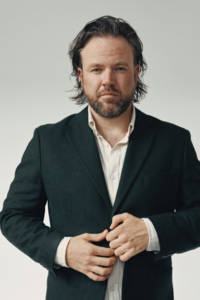 Christian Kluxen, conductor
Christian Kluxen, conductor
Now in his eighth season as Music Director of the Victoria Symphony in Canada, Christian Kluxen is also in his second season as Principal Guest Conductor of the Turku Philharmonic Orchestra in Finland, following a five-year tenure as Chief Conductor of the Arctic Philharmonic in Norway.
Kluxen has been described in the press as “a dynamic, charismatic figure” who “forms the music with an impressive vertical power of emotion and a focus on the grand form”, conducting “with exemplary clarity and a heavenly warmth”. He is recognized for his sincere and transparent leadership, innovative programming and his bold, imaginative and energetic interpretations, showcased both in his MD and guest work.
Alongside his many and varied commitments with the Victoria Symphony and Turku Philharmonic Orchestra, recent and forthcoming guest engagements include Orchestre de Chambre de Lausanne, Pacific Symphony, Prague Radio Symphony Orchestra, Copenhagen Philharmonic, Odense Symphony, and Norrköping Symphony. A fruitful and inspiring relationship with the Arctic Philharmonic, whom Kluxen led for five years as Chief Conductor, resulted in numerous exhilarating performances of a wide variety of repertoire, as well as several acclaimed recordings.
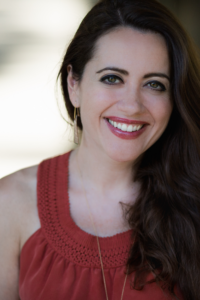
Amanda Forsythe, soprano
Amanda Forsythe is a regular soloist with many highly acclaimed orchestras and baroque ensembles including Chicago Symphony Orchestra, New York Philharmonic, Monteverdi Choir and Orchestra, Hong Kong Philharmonic, Los Angeles Chamber Orchestra, Boston Early Music Festival, Handel and Haydn Society, Boston Baroque, Tafelmusik, Apollo’s Fire, Academy of Ancient Music, Opera Prima, Pacific Musicworks, Early Music Vancouver, and Philharmonia Baroque Orchestra.
In 2025 she returns to Canada’s Victoria Symphony for Haydn’s Creation. Other engagements in 2024/25 include Mozart’s Coronation Mass with Chicago Symphony Orchestra, Handel’s Messiah with San Francisco Symphony and England’s Royal Northern Sinfonia, Orchestra of Saint Luke’s’ 50th Anniversary Concert, Ginevra in Ariodante with Boston Baroque, concerts at Tucson Baroque Festival, and a European tour of works by Carissimi and a staged production of Keiser’s Octavia with Boston Early Music Festival, with whom her performance of Euridice on BEMF’s recording of Charpentier’s La descente d’Orphée aux enfers won the GRAMMY AWARD for Best Opera Recording.
Her international opera career has taken her to Italy’s Rossini Opera Festival, London’s Royal Opera House, the Teatro dell’Opera di Roma and Berlin’s Komische Oper. In the USA she has performed with Opera Philadelphia, Seattle Opera, and many roles with Boston Early Music Festival and Boston Baroque.
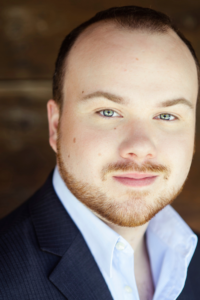
Owen McCausland, tenor
Canadian tenor Owen McCausland is increasingly in international demand for operatic and symphonic engagements. His 23/24 season included a return to the Cleveland Orchestra for Die Zauberflöte, conducted by Franz Welser-Möst, and a debut with Vancouver Opera as Tamino in the same opera. Owen’s season also saw his debut with the Adelaide Festival (Australia) for Stravinsky’s The Nightingale and Other Fables, after debuting the production with the Canadian Opera Company. Highlights of recent seasons include Verdi’s Otello and La fanciulla del west with the Cleveland Orchestra, Mozart’s Don Giovanni and Così fan tutte with Pacific Opera Victoria, Strauss’ Salome with the Canadian Opera Company (COC), and the premiere of Cusson’s Fantasma. Owen has received great acclaim for his performances of Pedrillo in Die Entführung aus dem Serail (COC), Jaquino in Fidelio (Pacific Opera Victoria), and Lensky (Opéra de Montréal).
On the concert stage, Owen joined Orchestre symphonique de Montréal for the World Premiere of Chaakapesh – The Trickster’s Quest under the baton of Kent Nagano at Maison Symphonique, followed by a tour of the Northern Territories and a highly acclaimed documentary. Most recently, Owen premiered Frehner’s L.E.X. with Soundstreams, and performed as tenor soloist in engagements with the Grand Philharmonic Choir, Victoria Symphony, Okanagan Symphony, Symphony New Brunswick, and Toronto Symphony Orchestra.
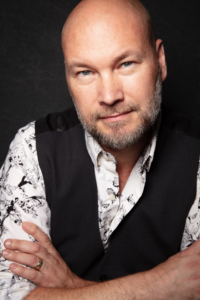
Tyler Duncan, baritone
With a voice described as “honey-coloured and warm, yet robust and commanding” (The Globe and Mail), baritone Tyler Duncan has performed with several leading orchestras including the New York Philharmonic, San Francisco Symphony, Toronto Symphony Orchestra, Minnesota Orchestra, and the Kansas City Symphony.
Recent notable performances include C.P.E. Bach’s Magnificat with the Handel and Haydn Society, Beethoven’s Ninth Symphony with the Vancouver Symphony Orchestra, Bach’s St. John and St. Matthew Passions with the Oregon Bach Festival, and Haydn’s Creation Mass with Music of the Baroque. In the 23/24 season, he collaborated with Early Music Vancouver for Apollo e Dafne; New Jersey Symphony, Grand Rapids Symphony, Edmonton Symphony, and the Calgary Philharmonic for Handel’s Messiah; and the Oratorio Society of New York for their 150th Anniversary celebration concert featuring Beethoven’s Ninth Symphony. He also joined the Amadeus Choir for Haydn’s Creation and debuted the role of Count Almaviva in Pacific Opera Victoria’s Le nozze di Figaro. Future engagements will see Mr. Duncan join The Elora Singers, Vancouver Bach Choir, Newfoundland Symphony Orchestra and the Edmonton Symphony Orchestra.
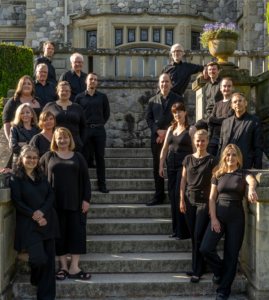 Vox Humana Chamber Choir & Friends
Vox Humana Chamber Choir & Friends
Vox Humana (Latin for human voice) was founded by organist and choral conductor Sarah MacDonald, now a Fellow of Selwyn College, Cambridge, and Director of Music of the choir there. Starting as a project choir in the 1990s, Vox Humana has developed under the subsequent leadership of Garth MacPhee, Wendy McMillan, Brian Wismath, and David Stratkauskas, who was appointed Artistic Director in February 2022.
Vox Humana has gone from a relatively small group of no more than sixteen voices singing a cappella repertoire to a group of approximately twenty-four singers that frequently collaborates with soloists, small instrumental ensembles, other choirs, and orchestras; since 2004 they have been frequent guests of the Victoria Symphony. New music has taken a central place in Vox’s repertoire, with frequent commissions and an emphasis on Canadian composers, as well as works not yet heard in Canada.
Currently, Vox produces several programmes per season; two of these have become popular annual traditions. Vox in the Stars takes place in the Dominion Astrophysical Observatory in Saanich, BC. The other is a dramatic reading of Dylan Thomas’s A Child’s Christmas in Wales, in a concert of seasonal music, along with new carols and arrangements from local composers.
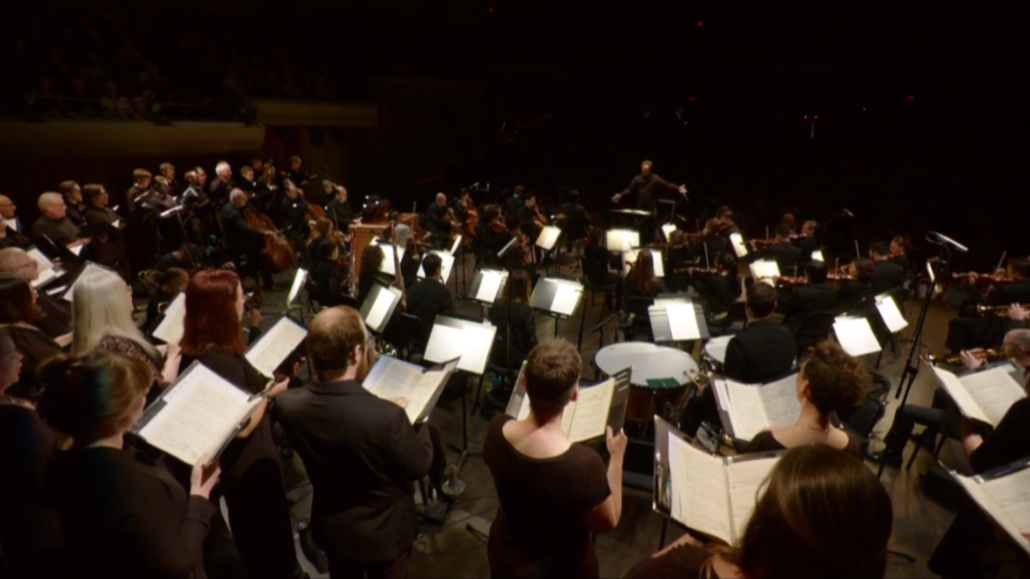


 Christian Kluxen, conductor
Christian Kluxen, conductor


 Vox Humana Chamber Choir & Friends
Vox Humana Chamber Choir & Friends